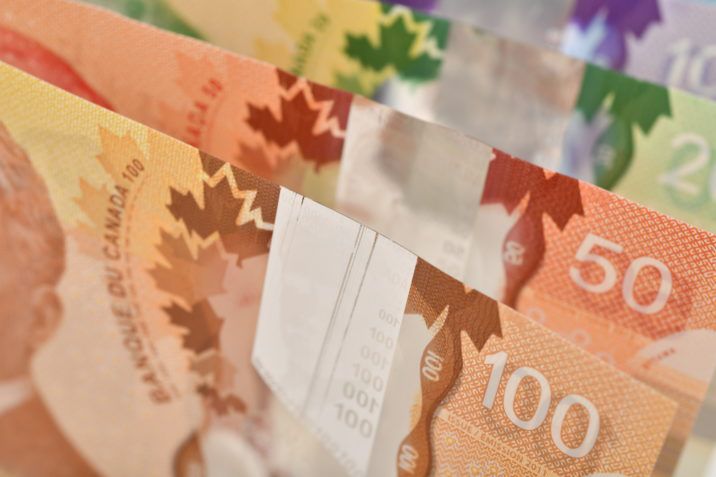You are here
Home 🌿 Recreational Marijuana News 🌿 The illicit market has a competitive advantage over Ontario retail stores. And numbers reflect this once again 🌿The illicit market has a competitive advantage over Ontario retail stores. And numbers reflect this once again

The snail-like pace of cannabis retail rollout in Canada’s largest province is just one reason the country as a whole has been unable to stub out the fiery illicit market and realize higher sales.
Retail stores accounted for about $200 million of Ontario Cannabis Store (OCS) total recreational sales, which amounted to just shy of $300 million in 2019, chief commercial officer Cheri Mara told the Toronto Star. “I wouldn’t be honest with you if I said we were happy with that number… when our mandate is to eradicate the illicit market,” Mara said, noting the estimated Ontario market is $2.9 billion.
Prior to the pandemic, Canadian provinces all had stagnated sales in February, with Quebec actually reporting a month-to-month decline. Even in retail standout Alberta, the recent provincial budget noted weed will lose $26 million this fiscal year and not be profitable for three years.
Whatever the province, it seems as though the illicit market has been blamed for the lack of growth in legal cannabis. As a result, improvement in retail sales is not expected absent enhanced efforts to shut down illegal operations.
And this doesn’t look like it’s going to change anytime soon. Any comparison between legal and illegal is really no comparison at all.
With no regulatory oversight costs and greater product variety, coupled with lowballing prices and slow legal retail rollout, illegal players could be around for some time, Omar Khan, national cannabis sector lead at Hill+Knowlton Strategies, suggested to Global News.
Khan touches on an interesting point that has to be considered when we think about cannabis sales in this country. The regulations surrounding legalization put so many obstacles in the way of the legal weed retailer that the illicit market receives an unfathomable competitive advantage.
An oft-cited point in this argument is Ontario’s limited retail selection. The Alcohol and Gaming Commission of Ontario website shows just 58 cannabis retail locations are authorized to open. (It is not clear if all are actually open.) That compares to 454 in Alberta.
With 700-plus legal cannabis retail locations across Canada, Ontario and Quebec — two-thirds of the potential consumer market — “remain woefully under-stored,” Mitchell Osak, national leader of MNP’s Cannabis Consulting Practice, wrote in his March Canadian Cannabis Market Update.
“If it’s not convenient for consumers to access the product through the legal system, why would they ever leave the legacy illicit market?” Khan asked.
Based on price quotes using the StatsCannabis crowdsourcing application, figures from Statistics Canada show the average price of cannabis in the illicit market for the fourth quarter of 2019 was $5.73 a gram, a bit more than half of the $10.30 average price of legal weed.

OCS has reduced prices on more than 240 products. / Photo: smileitsmccheeze / iStock / Getty Images Plus smileitsmccheeze / iStock / Getty Images Plus
Lower prices are another tool that experts believe can help combat illicit shops and allow legal retail to reach its sales potential. To reduce the gap between legal and illegal weed prices, a redoubling of efforts is needed, Osak suggested, adding that consumption of legal recreational cannabis “could drop as consumers tighten their purse strings.”
Several Canadian licensed producers have introduced lower-cost brands — including Hexo, Zenabis and Aurora — to appeal to deal-seekers. OCS, for its part, has reduced prices on more than 240 products, Mara told The GrowthOp last month.
The real hurdle to clear, though, is provincial wholesale markups. Brock University professor Michael Armstrong has said Quebec’s average markup was 23 per cent compared to Ontario’s 77 per cent. That difference “reflected Quebec’s prioritizing shutting down the illicit market and Ontario’s hope to derive revenue from cannabis sales.”
Khan would likely agree. Legal prices, driven up by taxes, have been a factor in helping keep the black market “as rampant as ever,” he said.
420 Intel is Your Source for Marijuana News
420 Intel Canada is your leading news source for the Canadian cannabis industry. Get the latest updates on Canadian cannabis stocks and developments on how Canada continues to be a major player in the worldwide recreational and medical cannabis industry.
420 Intel Canada is the Canadian Industry news outlet that will keep you updated on how these Canadian developments in recreational and medical marijuana will impact the country and the world. Our commitment is to bring you the most important cannabis news stories from across Canada every day of the week.
Marijuana industry news is a constant endeavor with new developments each day. For marijuana news across the True North, 420 Intel Canada promises to bring you quality, Canadian, cannabis industry news.
You can get 420 Intel news delivered directly to your inbox by signing up for our daily marijuana news, ensuring you’re always kept up to date on the ever-changing cannabis industry. To stay even better informed about marijuana legalization news follow us on Twitter, Facebook and LinkedIn.




